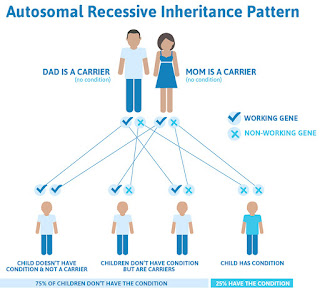Scientists discover rare genetic condition that attacks kids’ immune systems
Congenital CMV Linked To Hearing Loss
In most cases, the virus known as Cytomegalovirus has no symptoms but pregnant women who contract the virus can pass it along to their babies. A new Georgia law is in effect that makes it mandatory for early testing for hearing loss, and pediatric Dr. Paula Harmon visited Good Day to discuss what parents need to know with Alex Whittler.
Listen Closely: CMV Shouldn't Be Overlooked
Hearing loss. Developmental delay. Vision loss.
These are all effects experienced by children who contracted congenital cytomegalovirus (cCMV) at birth. In a healthcare system as well funded and forward-thinking as California's, no child should be at risk of suffering permanent disabilities as a result of a missed diagnosis. Their suffering could be greatly reduced with early treatment, which requires early detection — preferably at birth. But that approach has yet to be universally embraced.
In California, 156 out of every 1,000 infants are born with Cytomegalovirus (CMV) infection, nearly 5% of live births. The condition often affects children who are born prematurely or with lower birth weights, and can lead to significantly longer hospital stays, or even death. In children diagnosed with cCMV at birth, treatments can lessen the severity of the virus.
In California, the Newborn Hearing Screening Program requires that each newborn is given a hearing test prior to discharge. However, the efficacy of hearing screening as a precursor for CMV testing is still uncertain, and experts in the field — American Academy of Otolaryngology-Head and Neck Surgery, the American Speech-Language-Hearing Association and/or the American Academy of Pediatrics — have yet to make formal position statements on the approach.
Universal screening may not be the most feasible option for a state as large and populous as California — educating providers, the cost of testing and the infrastructure present enormous obstacles for implementation. Despite these concerns, a number of health systems in the state — including UCSF's own Betty Irene Moore Women's Hospital — do provide an alternative: hearing-targeted newborn screening for cytomegalovirus.
While implementation of universal CMV screening would likely result in logistical and infrastructural headaches for clinicians and policymakers, other states' targeted approaches may be one path forward.
In addition, experts in pediatric otolaryngology, head and neck surgery and audiologists should examine the utility of CMV screening. The first step towards improving conditions is to follow other state legislatures.
In 2016, Connecticut passed legislation to ensure that every newborn who fails their hearing test receives CMV screening, along with other screening conditions. The state of Minnesota was the first to enact universal newborn CMV screening through the Vivian Act in 2021, which also included funding to educate healthcare providers and expectant mothers about the risks of CMV.
Illinois, Iowa, Kentucky, Maine, New York, Pennsylvania, Texas, and Utah all require education and targeted newborn screening measures. Many of these same states require that each newborn who fails the hearing screening be tested for congenital cytomegalovirus.
Children who are at risk for CMV deserve to be heard. We should ensure that California policymakers are listening.
Congenital CMV Linked To Hearing Loss
In most cases, the virus known as Cytomegalovirus has no symptoms but pregnant women who contract the virus can pass it along to their babies. A new Georgia law is in effect that makes it mandatory for early testing for hearing loss, and pediatric Dr. Paula Harmon visited Good Day to discuss what parents need to know with Alex Whittler.
Posted October 31, 2024 9:45am EDT


Comments
Post a Comment